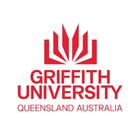Graduate Certificate in Health Services Management
Graduate Certificate in Health Services Management
You will study a wide ranging and diverse base of specialist health management courses. If you are a graduate or manager in health and aged care services and you want to develop your skills and understanding of contemporary health service management issues, these degrees will help you achieve your goals….
Categories
COURSE DESCRIPTION
You will study a wide ranging and diverse base of specialist health management courses. If you are a graduate or manager in health and aged care services and you want to develop your skills and understanding of contemporary health service management issues, these degrees will help you achieve your goals. Through flexible teaching and research options, you will learn about key areas of health sector policy, governance, operations and evidence-based practice management.
You will develop skills and knowledge in current management theory and practice, develop your leadership skills and style and gain an in-depth understanding of health workforce planning. You will also learn about managing human resources, planning and implementing health programs, and managing performance and health budgets from respected industry practitioners and academics. Additionally, you will develop skills in strategic decision making and change management and an understanding of the role of technology in health management.
Through a project directly relevant to your organisation’s strategic direction, you will develop research and project management skills.
My career opportunities
You will find work in Australia and overseas as a manager developing improved health systems and services.
Pathways to further study
The Graduate Certificate in Health Services Management articulates into Master of Health Services Management (5586).
REQUIREMENTS
To be eligible for admission to the Graduate Certificate in Health Services Management, an applicant must hold:
- a bachelor degree in a health-related field (Public Health, Health Services Management, Allied Health, Environmental Health, Dentistry, Medicine, Midwifery, Nursing)
- OR a bachelor degree in an unrelated discipline (that is, a degree in a discipline other than medicine, nursing, public health, environmental health, allied health, psychology clinical health, research or biomedical health)
- OR a health-related diploma PLUS two years relevant work experience in the health or aged care sector
- OR have a minimum of five years equivalent full-time work experience in administration, management and leaderships roles within health care organisations and students would be expected to have career goals to work in health-related organisations.
English language requirements apply to International applicants and other applicants whose previous study was undertaken in a language other than English. The minimum English language requirements for such applicants for entry to this program are as follows: A minimum overall band score of 6.5 on IELTS (Academic) with no sub-score of less than 6.0; OR a minimum score of 575 on TOEFL; OR an internet-based (iBT) TOEFL score of 79 (no sub-score less than 19); OR no score less than 3+ in each skill of the ISLPR (conducted by ISLPR Language Services only); OR a minimum overall score of 176 (no score less than 169) on C1 Advanced (formerly Cambridge Certificate in Advanced English) or C2 Proficiency (formerly Cambridge Certificate of Proficiency in English); OR an overall score of 58 in the Pearson Test of English (Academic) with no score less than 50.
EDUCATIONAL INSTITUTION
Griffith University is ranked in the top 2% of universities worldwide and strives to create a brighter future for all by prioritising innovation and social impact. We are committed to providing international students with quality education, guidance, and support. With Australia’s most awarded teachers, Griffith University offers a full suite of undergraduate, postgraduate and research degrees in areas including architecture, construction, and planning; business and government; criminology and law; education; engineering, IT and aviation; humanities, languages and social science; medicine, dentistry and health; music and performing arts; science and environment; visual and creative arts.




